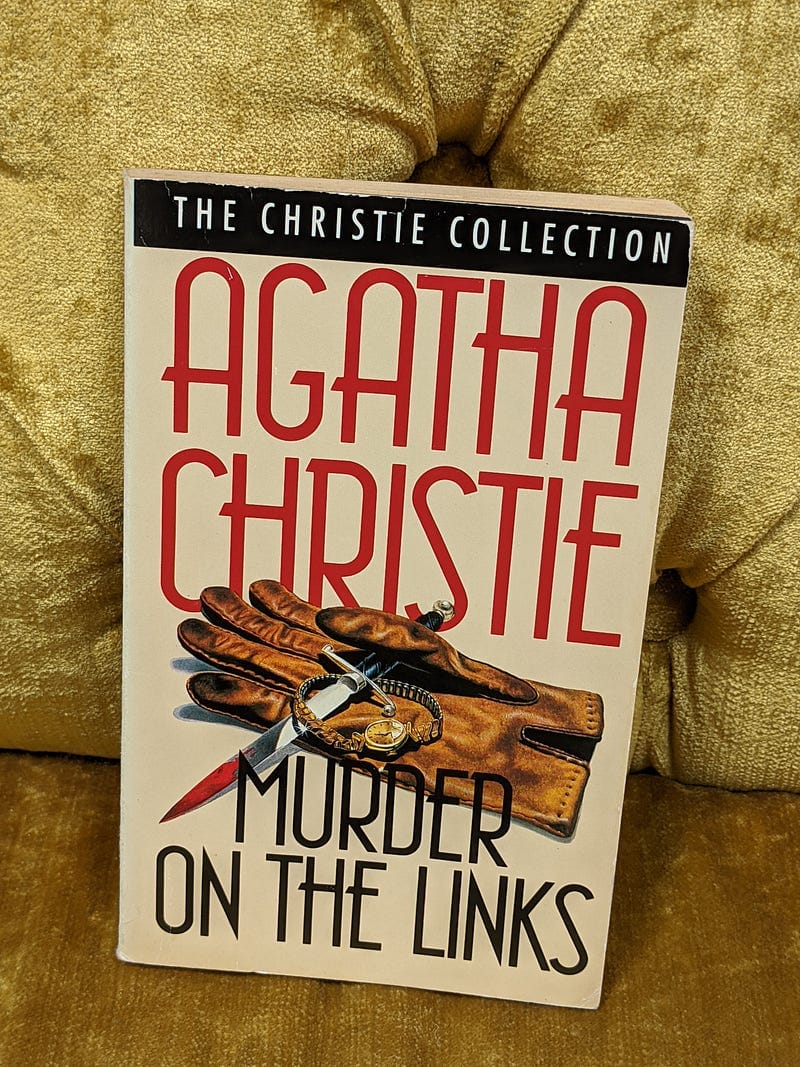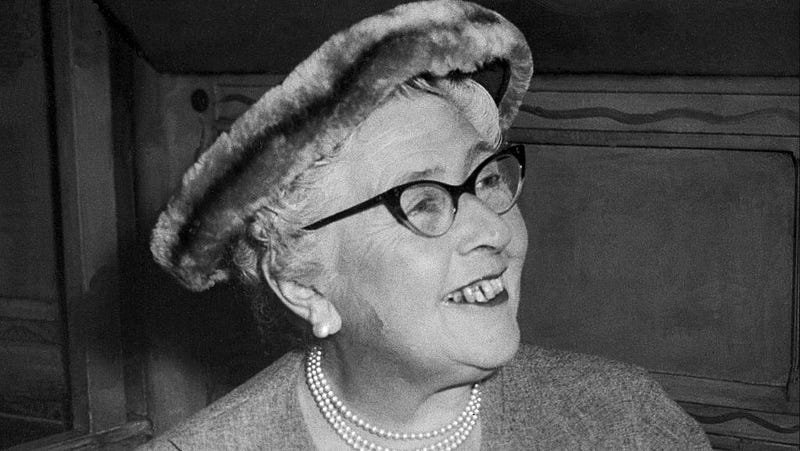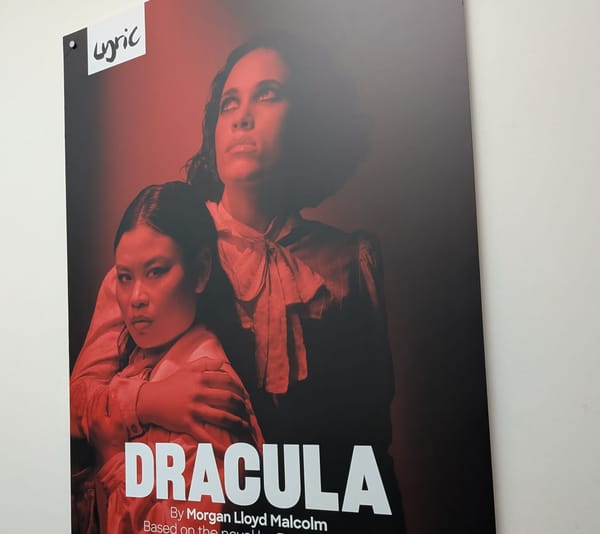The Mystery of Agatha Christie
Can the individual author ever match up to the brand?

I don’t remember exactly how I fell in love with Agatha Christie, but I am firm that it was before Sherlock Holmes. He came later, but not much later. And it was Joan Hickson as Miss Marple I fell for first, not Hercule. The encyclopedia in the sky tells me that she first played Miss Marple in 1984, when she investigated The Body in the Library. Hickson was at the tail end of a glittering career by then, but to many kids of the 1980s, she is Marple as sure is Suchet is Poirot and Moore was Bond.
The mystery to me is how a pre-teenaged ‘80s northern boy could fall for such a writer as Christie, such a character as Marple. It was obvious that Marple was a version of Christie herself by the 1980s: a busybody old lady who had a knack for noticing things, and never settling for no as an answer. But Marple had been born in 1927, in a series of short stories, when Agatha was only 37. To be sure, I wasn’t a fan of Action Man but I did like the Hardy Boys, Bond and the Hobbit as well as Caspian. There was only one TV set in the house, and it was tuned to Marple, so it was a clear choice between Joan and the books, and there was just something about Marple that made her impossible to resist. Poirot was interesting too, but he came later into my life. Radio 4 started broadcasting a Christie each year, beginning on Boxing Day, so it became a secret part of my Christmas for a number of years when the socialising became too onerous and half an hour lying down with the radio on seemed a better option.
One year, a dream came true and a boxed set of half a dozen Christies emerged, the ones with the covers by Martin Baker, shown here. I had decided to obtain every single one of these but as fate would have it, I never requested or received any more. I had found Frederick Forsyth, among others, including Jeffrey Archer.
I have moved the books to every flat, digs and house since then, and they now reside in the downstairs scullery, unopened, their pages browning steadily. Until 2021, that is.
Last year I revived my enjoyment of American crime stories and it became clear that even over the pond, Agatha Christie is still a big deal. A couple of years previously a holiday near Torquay had led us to Greenway, her impressive country home, and onto the steps of the Christie trail. My spy walks in London led me to Flemings hotel, possibly a model for various London hostelries featured in Agatha’s novels. The echo of Agatha was impossible to ignore. And lockdown finally provided the excuse. And not forgetting those excellent Audible audiobooks and radio plays. (We attenuate the existence of Kenny Branagh as Poirot deliberately at this point.)
If the main reason for forgetting Agatha was simply growing up, or growing tired of a supposed format and repetitive characters, a large part of it was just self-consciousness. 1980s youth where I experienced it was not known for its attention to literary criticism, and Agatha was just not cool.

I only ever saw that picture, of a late Agatha in twinset and pearls. She really did look like Marple. She was Marple, to me.
But the last decade has seen an Agatha revival. Without mentioning Branagh, the revival perhaps began (certainly without me noticing) with a brilliant, thorough and positive biography by the acclaimed Laura Thompson. Thompson writes with a mission. First of all to the truth of Agatha’s life, however much it pushes against received wisdom. And second of all as a fan, to right a wrong.
On the most superficial TV Times-style summary, yes, Agatha’s stories are repetitive, simple, with a clever puzzle which you probably won’t solve. They are the epitome of the Golden Age of country house murder mysteries where there is a lot of poison but not knives, guns or worse. If she couldn’t have a doctor be the killer every week, using some painless euthanasia in a clinic, she would contrive the next best thing: a bloodless assassination by someone of high reputation who nobody (at least in the book) could ever reasonably suspect. But look at those supporting casts more closely. According to Thompson, many of them mirror people and events in Agatha’s own life. Apart from the actual murders, it seems that Agatha had a lot going on, and writing it down was one way of coping.
Two husbands at a time when divorce was much more difficult legally and socially, a mystery of her own when she disappeared up north for days on end, hitting the national news. A child who was distant in one way or another, either because she was an introvert or because Agatha was just too wrapped up in her own mother, even into late adulthood.
I grabbed a copy of Agatha Christie: A Mysterious Life by Laura Thompson and also Agatha’s own version of her life, her autobiography from 1977, the one that apparently forgets all about the disappearance north. This was to be the start of my spring reviewing project. Barely 100 pages into A Mysterious Life, I am loving every page. The detail is impressive without being at all a burden. Every line has some revelation about Agatha’s incredible life that makes me impressed, shocked, sympathetic, or any one of a hundred emotions.
Agatha Christie is probably not the woman you expected. But I have already answered my main question: was the writer, the woman, half as interesting as her stories? The answer to that, I am happy to report, is yes. And I still have 400 pages to go…





